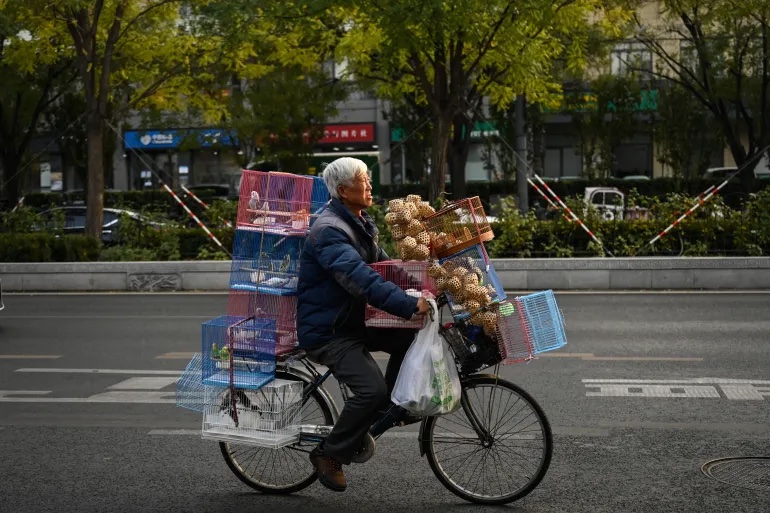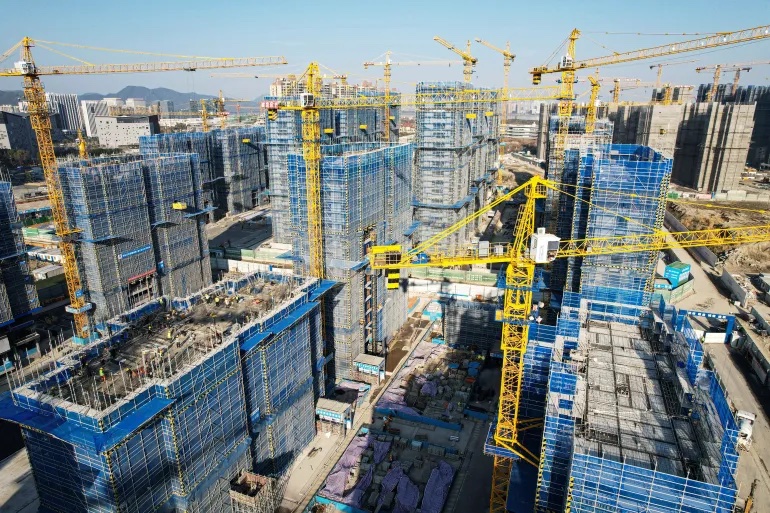The Rising Trend of Retirees Returning to Work in China

Image: AFP
When Mr. Hao Pengfei retired last year, he found that retirement wasn’t what he had expected. “I used to think that retirement would be a time to relax and do things I enjoy, not a time of stress and worry,” shared Mr. Hao, who lives in Nanking, eastern China.
Mr. Hao used to work as a manager for a state-owned company until he turned 60 last year. Although he still wanted to continue working, company policy mandated retirement at the age of 60. However, Mr. Hao’s retirement didn’t last long. Due to mortgage payments, home renovations, and medical expenses exceeding his monthly pension, he quickly returned to the job market.
Currently, he works part-time as an accountant for a restaurant during the day and as a hotel security guard at night. “My wife is also trying to find new solutions to reduce our family’s expenses,” he shared. He mentioned that his wife hasn’t been able to work since she injured her back nearly 20 years ago.
Traditionally, many elderly Chinese people move in with their children after retirement, but Mr. Hao doesn’t consider that an option. “Our son lives in a cramped apartment in Shanghai with his wife and two daughters. There’s no room for us there, and besides, my wife and I prefer to live in Nanking,” he said.
His son and family visited for a few days during the Lunar New Year holiday in February.

Image: AFP
For many Chinese people, the lunar holiday is a time when they typically spend more on transportation, food, and gifts. However, Mr. Hao and his family tried to minimize their expenses. Despite doting on their granddaughters, they still want to save money this year with the hope of eventually enjoying a worry-free retirement.
According to a 2022 survey conducted by Chinese job recruitment website 51job.com, over 2/3 of elderly Chinese people intend to return to work after retiring.
While some media outlets have portrayed this trend as positive for the Chinese economy, which is experiencing labor shortages in certain industries, Mr. Hao sees it differently. “I believe this indicates that our pension system is currently unable to provide a comfortable life. It doesn’t bode well for the future,” he shared.
Mr. Yang Jiang, a senior researcher at the Danish Institute for International Studies, believes the trend of retirees returning to work reflects the challenges faced by the pension system in meeting people’s needs. “Some people experience a significant drop in income when they retire, forcing them to return to work,” he argues.
Originally managed entirely by the state to support elderly care responsibilities, China’s pension system expanded to cover approximately 1.05 billion people – almost the entire population – as the country urbanized, family ties weakened, and the aging population increased. However, there is still a significant disparity.
While urban workers like Mr. Hao receive an average basic monthly pension of around $470, rural and migrant workers can only expect around $25.
Working at a construction site just a few rows of houses away from Mr. Hao’s home in Nanking, Mr. Gu Chengji, 63, is among those who would receive little from the pension system if he retired tomorrow.
As one of nearly 300 million migrant workers in China, Mr. Gu is registered as a resident of the rural village where he was born. This makes him ineligible for more generous social welfare benefits available in the city where he has lived and worked for most of his life.
Mr. Gu believes he will have to work for at least another 10 years before he can afford to retire. However, he fears that his body may not be able to endure another decade of hard work at construction sites. “I have worked diligently for a company for many years. They know I am a good worker, so now they have me doing easier tasks. But the work is still tough, and there are many nights when I can’t sleep due to back and knee pain,” he shared.
The influx of millions of migrant workers like Mr. Gu to China’s major cities has exacerbated gaps in the pension system. This has deprived rural areas of the necessary workforce to support their pension schemes.
Additionally, the real estate crisis in China has further exacerbated funding shortages as many provincial governments rely on land sales to compensate for revenue shortfalls.
Moreover, China’s declining population has worsened the pension crisis. Last year, the number of Chinese people aged 60 and above reached an all-time high of nearly 300 million. In the next 10 years, it is projected that an additional 300 million Chinese citizens will reach the official retirement age – 60 for men and 55 for women. Meanwhile, the labor force continues to shrink.
China’s population has declined for the second consecutive year in 2023, with the country’s birth rate reaching a record low of 6.39 births per 1,000 people.
According to a 2019 study by the Chinese Academy of Social Sciences, the main pension fund for urban workers is projected to be depleted by 2035.
Mr. Allan Von Mehren, a China economist at Danske Bank, stated, “There are significant challenges, and this requires pension reform.”
Signs indicate that China is taking steps toward reform, such as plans to gradually increase the retirement age in Beijing.
Mr. Von Mehren added, “China still has untapped resources in terms of overall education levels and productivity. These resources can be mobilized to help address future challenges.”
Ms. Sun Mengjie, an accountant for a medical supplier in Guangzhou, worries that she won’t be able to rely as much on the government or other organizations in the coming decades. Thus, she wants to save as much money as possible.
Mr. Hao also hopes that China can make its pension system financially feasible. “Otherwise, I worry that when my granddaughters grow up, China won’t be a good place to grow old,” he said.
